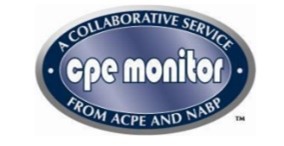Announcer:
Welcome to CME on ReachMD. This episode is part of our MinuteCE curriculum.
Prior to beginning the activity, please be sure to review the faculty and commercial support disclosure statements as well as the learning objectives.
Dr. Campos:
Hi, this is CME on ReachMD, and I'm Dr. Susana Campos.
Today's talk will focus on the pulmonary and cardiac side effects related to ADC [antibody-drug conjugate] therapy in patients with gynecological malignancies. ADCs are important in the management of gynecological cancers simply because of poor outcomes despite advanced treatments. these ADCs involve the use of antibodies to deliver highly cytotoxic agents directly to tumor cells. Theoretically, this concept should provide a significant increase in the therapeutic window when compared to chemotherapy.
Let’s look at some of the ADCs that are being studied in gynecological cancer and specifically talk about their cardiac as well as their pulmonary adverse events [AEs]. One particular ADC is trastuzumab-DXd [deruxtecan], and this has been studied in the DESTINY-PanTumor trial. This particular trial, the DESTINY-PanTumor trial, explored the use of trastuzumab-DXd in gynecological malignancies, namely endometrial, cervical, and ovarian cancer. In this particular study, objective response rates were noted to be as high as 85% in the endometrial cohort, 75% in the cervical cohort, and 64% in the ovarian cohort. This is in the IHC 3+. In terms of efficacy endpoints, again, progression-free survival was quite respectable in the endometrial, cervical, and ovarian cohorts.
Now in terms of safety, the safety profile in this particular trial was consistent with the established profile of the trastuzumab-DXd. Namely, most of the side effects were that of gastrointestinal toxicity, nausea, diarrhea, vomiting, decreased appetite, and also hematological: neutropenia, anemia, and thrombocytopenia. It is important to note that some patients did experience interstitial lung disease as well as pneumonitis. And this is actually quite important.
In terms of cardiac toxicity, there are no reports of drug-related cardiac events; however, patients treated with trastuzumab may be at increased risk for developing left ventricular dysfunction. So it's important to assess the left ventricular ejection fraction prior to the initiation of trastuzumab-DXd and at regular intervals during the treatment as clinically indicated.
In terms of the pulmonary toxicities, the ILD and pneumonitis is an important consideration for patients on ADC therapy. Most cases of drug-related interstitial lung disease in this trial were low grade and manageable; however, 3 drug-related ILD/pneumonitis-related deaths occurred, one of them in the endometrial cohort.
Another ADC was presented at ESMO by Dr. Katie Moore, and this is R-DXd. And this particular ADC is a CDH6-directed ADC composed of 3 parts: a humanized monoclonal antibody covalently linked to a topoisomerase inhibitor payload via a linker. In this particular study, it was a phase 1 study, but in the ovarian cancer cohort, an overall objective response rate of 46% was seen. There was 1 complete response and 22 partial responses. The median duration of response was 11.2 months, and the median progression-free survival was 7.9 months.
In terms of toxicities, specifically cardiac toxicities, there were no cardiac toxicities observed. However, there were some pulmonary toxicities observed at higher dosages. So when we think about how we manage these AEs, again, in terms of cardiac toxicity, it's important to get a baseline assessment of cardiovascular toxicity risk factors, including an echocardiogram. And if there are any concerns, a referral to cardiology should be made.
In terms of the pulmonary toxicities, it's important to have a proactive management. Monitoring is crucial, and patient education is also quite important. Oftentimes, a multidisciplinary approach should be taken. A baseline CT and a CT done somewhere between 9 to 12 weeks thereafter should also be considered. It’s important to consider to consult the pulmonary discipline, especially if the trastuzumab-DXd causes pneumonitis. This is important in terms of treatment recommendations. Very important is the fact that treatment should be interrupted in the event of a grade 1 toxicity of ILD and pneumonitis. The event should resolve before resuming therapy. Steroids should be given for grade 2 and above, consider that for grade 1, and also discontinue the trastuzumab-DXd for any toxicity, ILD/pneumonitis that is greater than or equal to 2.
Well, this has been brief, but a great discussion. Unfortunately, our time is up, and thank you for tuning in.
Announcer:
You have been listening to CME on ReachMD. This activity is provided by Prova Education and is part of our MinuteCE curriculum.
To receive your free CME credit, or to download this activity, go to ReachMD.com/Prova. Thank you for listening.


 In
In  Global Learning Collaborative (GLC) has been authorized by the American Academy of PAs (AAPA) to award AAPA Category 1 CME credit for activities planned in accordance with AAPA CME Criteria. This activity is designated for 1.0 AAPA Category 1 CME credits. Approval is valid until March 19, 2025. PAs should claim only the credit commensurate with the extent of their participation in the activity.
Global Learning Collaborative (GLC) has been authorized by the American Academy of PAs (AAPA) to award AAPA Category 1 CME credit for activities planned in accordance with AAPA CME Criteria. This activity is designated for 1.0 AAPA Category 1 CME credits. Approval is valid until March 19, 2025. PAs should claim only the credit commensurate with the extent of their participation in the activity. Global Learning Collaborative (GLC) designates this activity for 1.0 contact hours/0.1 CEUs of pharmacy contact hours.1
Global Learning Collaborative (GLC) designates this activity for 1.0 contact hours/0.1 CEUs of pharmacy contact hours.1 
